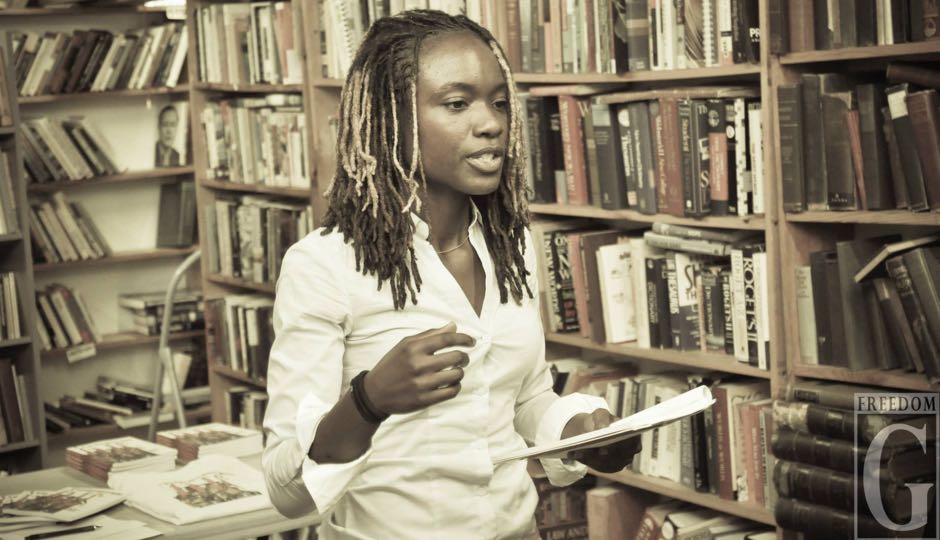Sheena Howard on Race, Gender, and the Intersections of Queerness

Sheena Howard, PhD, is an assistant professor of communication at Rider University.
You’re no stranger to G Philly and examining social dynamics pertaining to race, queerness, and communication. What current projects are you doing to further this dialogue?
Right now, my documentary Remixing Colorblind, which will be premiering on February 25th at the Ritz at the Bourse, is taking up most of my time. The film explores the ways in which higher education shapes our perception of race. My experience as a doctoral student at Howard University really transformed how I thought about identity and how influential higher ed is in shaping our notions of race. I really found myself at Howard University. While I was there, the intersection of race, gender, and sexual orientation, on a personal level, really became clear to me. At Howard University I became aware of the influence institutions can have on a person’s sense of self and others. I carry that awareness with me and it continues to shape the projects I work on.
What makes the film unique for you as a queer woman of color?
When I think of the word queer, I think of a lot of things, but one thing that comes to mind is challenging the status quo and speaking back to power structures and cultural norms. In a sense, this film challenges universities to take a look in the mirror, it challenges the taken-for-granted cultural norms of institutions. What I want this film to be is a piece of work that inspires universities to take seriously the ways in which campus culture reinforces notions of implicit bias, racism and discrimination, oftentimes making it difficult for students of color to thrive. There is a race gap when it comes to retention rates and graduation on college campuses, particularly for Black and Hispanic students, yet over the last few years we have seen an increase in Black and Hispanic students who enroll in institutions of higher learning. One of the guiding questions of this documentary was, What is happening between freshman orientation and graduation that is discouraging these students from graduating?
What are some of the challenges you face from others in your professional/social life while tackling such subject matter?
As a Black woman, you have to work harder to establish respect and credibility, even when you are over-qualified or have earned the respect of those around you. This is reflected in something as simple as disparities in how much women of color get paid, compared to white men and women for the same work with the same level of education. How do you overcome that? You cant legislate your way toward making people see you as equal or as just as valuable as someone else. This is a challenge, as a Black woman. Also, I think the intersection of my race, gender, and sexual orientation simply makes a lot of people uncomfortable, no matter what company I find myself in. In academe, one of the challenges I face is convincing those around me that things like diversity actually matter. I’ve learned that people like to use the word diversity but are not as invested in what that actually means in practice. That is frustrating.
What have you personally learned about your identity along the way?
I’ve learned to love myself. We live in a world that can be cruel, that can be damaging, and that can, if you let it, defeat you. Self-love will get you through, even as society questions your value. As a Black, lesbian woman, I am told that each of my identities, separately and as they work together, don’t matter. I have learned to use writing and now art as an outlet, and in doing so I am able to connect to and with different types of people, across different worlds and social groups.
Given that you’ve explored many parts of the Gayborhood and city over all, what’s one crucial skill the community can apply in order to help resolve current social stigmas?
One thing I wish the Gayborhood would cohere around is unity. Even within the Black gay community in Philadelphia, there is a lack of unity. We call it shade. There is a lot of shade out here, yet Philadelphia is such a small city so it is very confusing to me. So, if more people made genuine connections and took a genuine interest in one another, communities within and across the queer community would be empowered.


